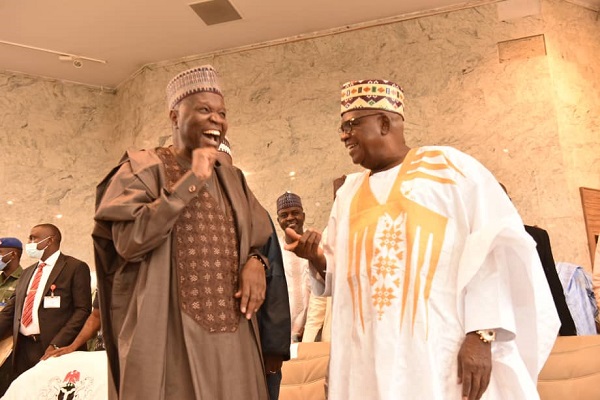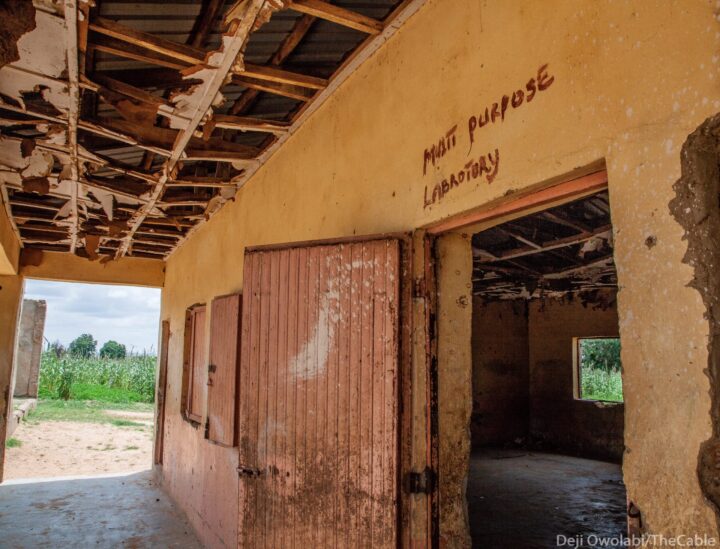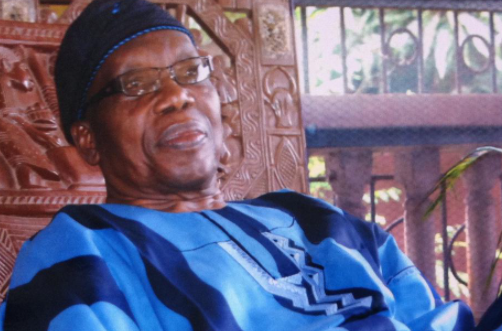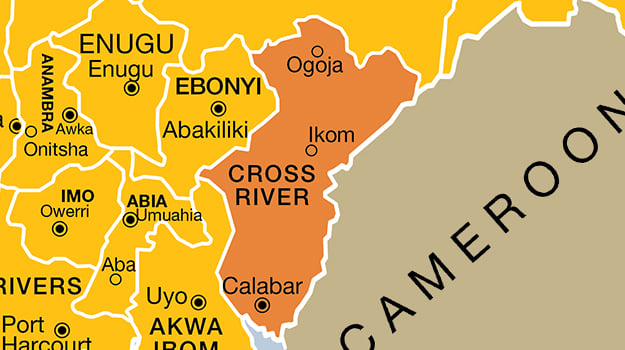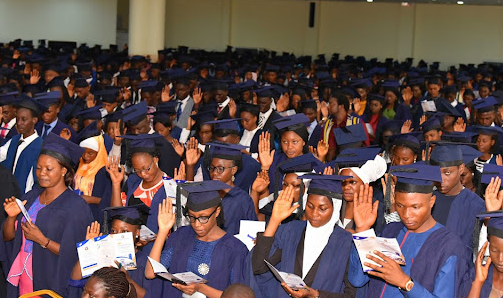BY MUHAMMAD MUSA-GOMBE
In 2003, the Gombe Elders Forum, an association of respected former state and federal government ministers, doctors, religious figures, and civil servants, commissioned a research by local doctors into the scale of the human rights impact of the Kalare on their state and published their findings in the national press. They allege that between December 2003 and April 2007, at least 115 people were killed and scores more injured as a result of Kalare violence in Gombe state. It is not clear how many of the dead were innocent bystanders as opposed to participants in fighting between rival gangs or political factions. Human Rights Watch Report 2003-2007.
Friday last week saw another threat to the peace and security of Gombe state when a clan of political thugs in the name of Yan Kalare and Sara Suka resurfaced with ferocity, tormenting the people of the state. By the time the dust settled, 7 persons were confirmed dead.
Senator Muhammad Danjuma Goje, representing Gombe Central and former Governor of Gombe state, was attacked by suspected political thugs on his way to the state capital to attend a wedding. Eyewitnesses said in his entourage, several persons were cited carrying dangerous weapons as they drove to enter the city.
Advertisement
Residents and bystanders who witnessed the incident said another set of suspected thugs blocked the Gombe-Bauchi highway near the International Conference Centre in the state and set bonfires on the road. Initial reports say they were protesting bad representation by Senator Goje at the national assembly. In the fracas that ensued, one person was reportedly said to have died on the spot and many cars, including the senator’s, were vandalised.
Since the event, there has been trading of words between the erstwhile governor and the incumbent which would not allow the citizens of the state to slumber in the shade of complacent safety.
Recall in 2003, in Gombe, there exists a clan of political thugs birthed and raised in the name of Yan Kalare and Sara Suka who then presented a clear and present danger in the state.
Advertisement
According to Human Rights Watch (HRW) Report with the caption ‘Political Thuggery in Gombe’, civil society, opposition and other sources in Gombe allege that prior to the elections of 2003, PDP officials in Gombe recruited unemployed young men, paid them, and armed them to intimidate their opponents, chase away voters from polling stations and disrupt voting. They played a significant role in rigging the outcome to oust the incumbent All Peoples Party (APP) Governor Abubakar Hashidu and pave the way for the installation of Danjuma Goje of the PDP.
HWR, in the report, said Kalare gangs continued to engage in acts of intimidation of political opponents even after the 2003 elections. One former commissioner in the state government who had left the PDP for an opposition party alleged that his farm was burned by Kalare boys in 2005. “Kalare came to my farm and burnt it,” he said. “They burnt orchards, livestock, and crops. Two of my workers were beaten as well. One was lucky to escape with his life. Now, every time I go to the farm, I go armed.”
In September 2006, two All Nigeria Peoples Party (ANPP) governorship aspirants were attacked by political thugs. The youths attacked the convoy of the national secretary of the party, Senator Saidi Umar Kumo, destroying over 20 vehicles and injuring many of his followers.
Prominent former politicians in Gombe told Human Rights Watch that many powerful figures within the Kalare gangs are in fact on Gombe state and local government payrolls. One former government official gave Human Rights Watch a list of Kalare leaders, many of whom, it was claimed, occupy senior positions within the state government, including as special advisors and personal assistants to the governor. Other activists, lawyers and civil servants in Gombe town confirmed the connection, adding that these leaders and their associations are well known in Gombe.
Advertisement
The Yan-Kalare crimes were committed by the gangs of youthful thugs and vandals whose reputation for brutality, mindless carnage, and institutionalised thuggery was fearsome and foreboding. Citizens held them with infamous and notorious awe and they reigned with ruthless impunity and criminal bravado.
Since the return to democratic rule from 2003 to be precise, elections in Gombe have been characterised by the criminal activities of Yan Kalare thugs. Poverty is often argued to play a significant role in fostering the menace of Yan Kalare because most of the thugs that are used by politicians often come from poor family backgrounds. They move about freely with small arms and are known to have destroyed houses, shops, and cars in many parts of the state capital. In some cases, they break into people’s houses, beat them, and snatch some valuables.
However, the era of impunity of the powerful, intimidating, and highly linked Yan-Kalare political thugs ended when Governor Ibrahim Hassan Dankwambo took over the reins of state power as he was not disposed to their brutal existence.
On assumption of office in 2011, Governor Dankwambo rolled out a plan to rehabilitate and empower over 1,000 youths, most of them Yan-Kalare, to make them self-employed, hence more useful to society. During the historic and memorable ‘Handing over Ceremony’, Dankwambo banned the political thugs’ group, Yan-Kalare, and its twin brother Yan Sara-Suka.
Advertisement
Governor Dankwambo then instituted a programme to reorientate and rehabilitate the Kalare boys. Several surrendered and were trained as road marshal assistants, community sanitary and security workers. Governor Dankwambo let it be known that anyone caught in acts of thuggery and other crimes would be made to face the full wrath of the law.
Governor Inuwa Yahaya, who came in after Dankwambo, sustained this effort with the establishment of a Citizenship and Leadership Training Center at Boltongo and the Agricultural Entrepreneurship Training Center at Garin Tafida to train them and other youths on various skills and vocations.
Advertisement
Both Dankwambo and Inuwa Yahaya did put in place various measures to stem and stop political thuggery, but unfortunately, this seeming success towards liberating and transforming the teeming and vulnerable youths of the state is being truncated and is about to rear its ugly head.
Governor Yahaya and Goje are reported to be at loggerheads over issues bordering on the state and their party, the All Progressives Congress (APC). In September, the governor was quoted to have said he did not have a quarrel with Goje. “There is no row between him and me, it’s only that the party must give everyone a chance and remain honest,” he said.
Advertisement
Goje has already written to the attorney-general of the federation (AGF), Abubakar Malami, demanding an investigation into the violent attack on him. He has also petitioned the inspector-general of police, Alkali Baba; chairman of the Police Service Commission, the minister of police affairs and the commissioner of police in Gombe state, and had described the alleged attack as an unprovoked attempt by the ADC and the CSO to the Governor of Gombe state, to assassinate him and his personal assistant.
For now, questions are being asked as to whether the resurgence of Yan-Kalare is calculated ahead of the 2023 elections. In any case, self-interest, local rivalry and squabbling should not be allowed to be the order of the day and sacrificed at the altar of peace.
Advertisement
Governor Inuwa Yahaya may or may not be flexing his muscle in order to defend Gombe from the atrocities of political thugs, but the fires of discord, if any, between him and Goje, should be quenched and peace be allowed to continue to reign in the Jewel of the Savannah.
Muhammad Gombe, a media practitioner, writes from Abuja
Views expressed by contributors are strictly personal and not of TheCable.
Add a comment
